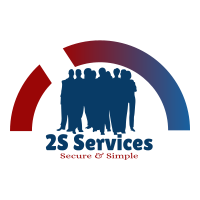Loans Without ITR: Your Ultimate Guide to Securing Financing
Introduction
Are you in need of financial assistance but don’t have Income Tax Returns (ITR) to show as proof of income? Loans without ITR might be the solution you’ve been looking for. In this comprehensive guide, we’ll delve into the world of loans that don’t require traditional income documentation and explore how you can secure financing even without ITR.
What Are Loans Without ITR?
Loans without ITR (Income Tax Return) refer to loan options that don’t require applicants to provide their income tax returns as part of the documentation process. These types of loans are typically offered to individuals who may not have a regular or documented source of income, such as self-employed individuals, freelancers, or those with limited financial records. Instead of relying on ITR, lenders may assess the borrower’s creditworthiness based on alternative documents like bank statements, business receipts, or other proof of income. It’s important to note that eligibility criteria, interest rates, and loan terms may vary depending on the lender and the specific loan product.
Who Can Apply For Loans Without ITR
Loans without ITR (Income Tax Return) are typically available to individuals who may not have a regular or documented source of income. The following groups of people may be eligible to apply for loans without ITR:
Self-employed individuals: Entrepreneurs, freelancers, consultants, and small business owners who generate income through self-employment but may not have regular salary slips or income tax returns.
Start-up owners: Individuals who are in the early stages of establishing their business and may not have a substantial financial history or income tax returns.
Professionals with irregular income: Professionals such as doctors, lawyers, artists, or actors who have irregular income patterns and may not have consistent income tax returns.
Individuals with cash-based income: Those who receive income in cash, such as small traders, shopkeepers, or individuals involved in informal sectors, may find loans without ITR suitable.
It’s important to note that the eligibility criteria for loans without ITR may vary among lenders. Each lender may have specific requirements, alternate documents to establish income, and different terms and conditions for such loan products. It is advisable to contact individual lenders or financial institutions to understand their specific eligibility criteria for loans without ITR.
- Eligibility Criteria
While specific requirements may vary between lenders, common eligibility criteria for loans without ITR typically include:
A satisfactory credit score.
Proof of income through bank statements, invoices, or other alternative documents.
Collateral (if applying for secured loans).
Employment status (self-employed, freelancer, etc.).
Define the loan’s goal clearly.
How to Apply
Securing a loan without ITR involves several steps:
Research and Compare Lenders: Begin by researching and comparing lenders who specialize in loans without ITR. Try to choose reputed organizations with good terms.
Gather Necessary Documentation: Collect the required documentation, such as bank statements, invoices, or business receipts, as specified by the lender.
Fill Out the Application Form: Complete the lender’s application form accurately and provide all requested information.
Submit the Application: Submit your loan application along with the supporting documentation and wait for the lender’s response.
Review Loan Offers and Terms: Once you receive loan offers, carefully review the terms and conditions, including interest rates and repayment schedules.
Documents required for loan without ITR
While the specific documents required for a loan without ITR (Income Tax Return) may vary among lenders, here are some common documents that lenders may ask for as alternative income verification:
Bank Statements
Business Documents: If you are self-employed or a business owner, you may need to provide business-related documents such as business registration certificates, partnership agreements, audited financial statements, or invoices and receipts to substantiate your income.
Proof of Assets: Documents showing ownership of valuable assets like property titles, vehicle registration papers, or investment statements can be requested as collateral or to assess your financial stability.
Identity Proof: Valid identification documents such as a passport, driver’s license, or Aadhaar card to verify your identity and residency.
Proof of Residence: Documents like utility bills, rental agreements, or property ownership papers that establish your current residential address.
Credit Score Report: Some lenders may require a copy of your credit report to evaluate your creditworthiness and assess your repayment history.
It’s important to note that the specific documents required may vary depending on the lender’s policies, loan amount, and your individual circumstances. It’s advisable to check with the lender directly to understand their specific documentation requirements for a loan without ITR.
